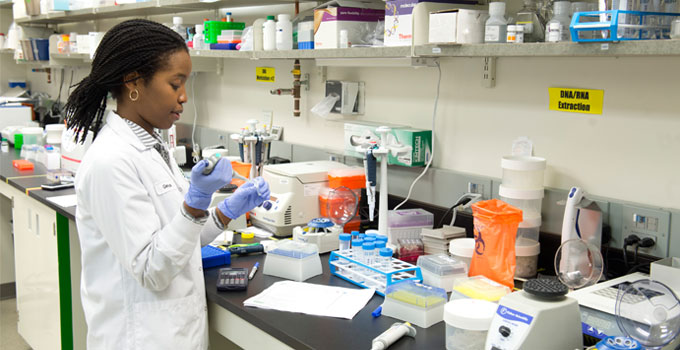
Researchers find a new way to detect small traces of tumour DNA in blood and determine the tumour’s tissue of origin
A blood sample can be used to detect and monitor certain cancers in select patients, but there are significant technical barriers that prevent the widespread adoption of this “liquid biopsy”. This type of blood test analyzes the rare traces of tumour DNA that are circulating in the blood, but distinguishing tumour DNA from healthy DNA is both difficult and expensive. New methods are needed to improve the accuracy, sensitivity and cost-effectiveness of liquid biopsies so that more patients can benefit from this less-invasive test.
In a study published today in Nature, a group of researchers, led by Dr. Rayjean Hung from the Lunenfeld-Tanenbaum Research Institute at Sinai Health System and Dr. Daniel De Carvalho from the Princess Margaret Cancer Centre, found an improved way to detect and analyze tumour DNA from blood samples. Their methods are based on analyzing patterns in how the DNA is modified – more specifically, methylated – rather than the common approach of analyzing variations in the DNA sequence itself. They termed their method cell-free Methylated DNA Immunoprecipitation and high-throughput sequencing, or cfMeDIP-seq.
“Our methods, which are based on looking at DNA methylation patterns, present an alternative to current liquid biopsies that often lack the accuracy and sensitivity required for clinical use,” says Dr. Philip Zuzarte, Scientific Associate at OICR and collaborator on this study. “The study shows that analyzing the methylation patterns could be very useful in early tumour detection, treatment monitoring and even post-treatment surveillance.”
While traditional liquid biopsies often examine specific areas of a tumour’s genome and look for predefined markers of disease, cfMeDIP-seq examines the methylation patterns across the entire genome. This could allow cfMeDIP-seq to detect cancers that may not have common or well-defined mutations, such as certain brain cancers, and in some cases determine the disease’s aggressiveness.
This study also shows that cfMeDIP-seq has the potential to differentiate between cancer types, something that was not possible with traditional liquid biopsies. This opens the opportunity to detect cancer and its tissue of origin from a blood sample in its early stages, before the disease is detectable by a CT or MRI scan.
Zuzarte says that the research group will continue developing cfMeDIP-seq as a method that could offer earlier tumour detection, more accurate cancer staging, less-invasive monitoring of the disease, and a better understanding of how a patient’s cancer evolves throughout treatment. “This research shows that looking at methylation patterns in circulating DNA can be very informative and we’ll continue developing the techniques and technologies to show its utility in the clinic.”
